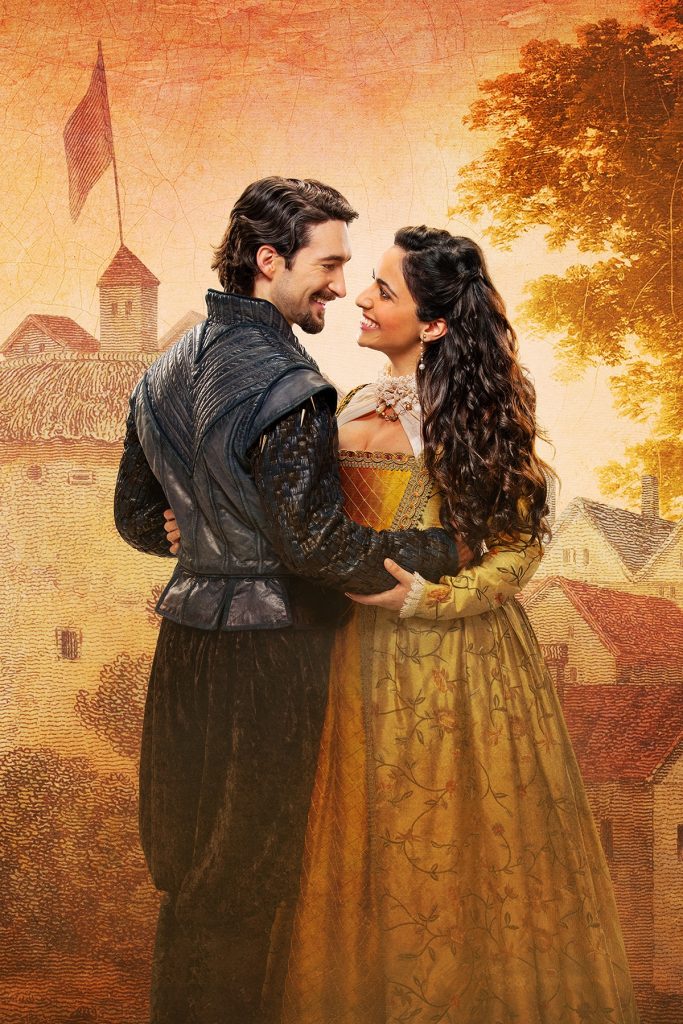
Credit: Emily Cooper
At Bard on the Beach until September 18, 2019
Tickets from $26 at bardonthebeach.org or 604-739-0559
Posted June 30, 2019
What do you get when you put playwrights Tom Stoppard and William Shakespeare together? A hit, a veritable hit.
Stoppard declined to adapt his Academy Awarding-winning film for stage but British playwright Lee Hall has done a superb job of it: retaining all the wit and cleverness of the original, shifting the focus slightly to emphasize the perils of show biz (going all the way back to the Elizabethan period’s highly competitive theatre companies) and retaining two parallel love stories: William Shakespeare and Viola De Lesseps, and Romeo and Juliet. Add music (sound designer Mishelle Cuttler), sumptuous period costumes (Cory Sincennes), stately dances (choreographed by Julie Tomaino) and some very risky swordplay (directed by Jonathan Hawley Purvis) and what you have is a delightful summer evening’s entertainment.
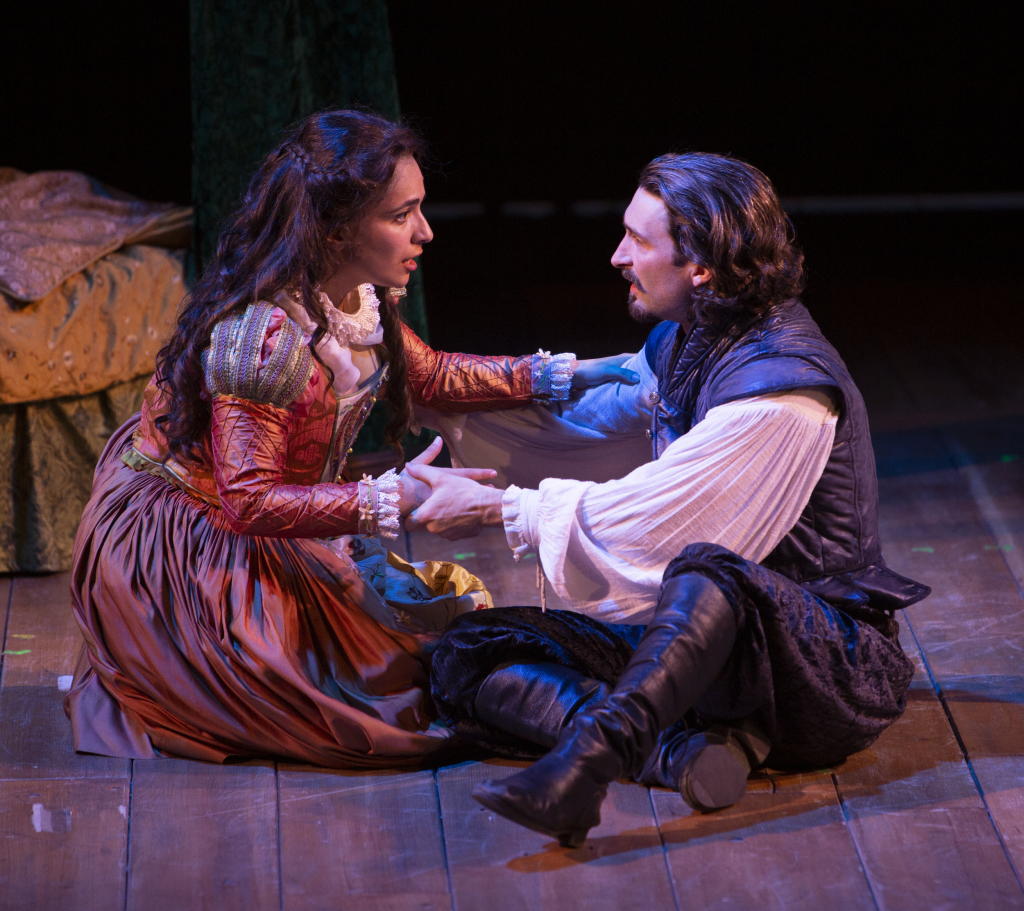
Credit: Tim Matheson
The play, apparently, has thirty more minutes of dialogue than the film but the stage play’s success is much more than more words: it’s live. Seated in the BMO Mainstage, against the magnificent backdrop of North Shore mountains, with more than seven hundred other theatre-lovers, it’s a communal affair: laughing together, groaning together, hearts beating sympathetically together. Film can take you to exotic locations but live theatre brings strangers together in a shared, in-the-moment experience. Despite all the humour – and director Daryl Cloran mines the play for all it’s worth – Shakespeare’s glorious, immortal words and the death of the star-crossed lovers, wrings pity from the most hardened heart.
In the play, Will Shakespeare (Charlie Gallant) has writer’s block. He’s stuck on a play called Romeo and Ethel, the Pirate’s Daughter – a play that Will’s good friend, playwright Christopher Marlowe (Austin Eckert), doesn’t think much of. Pressured by the theatre company’s debt-burdened owner, Henslowe (played by the very versatile Scott Bellis), rehearsals being on the yet-to-be-written play; auditioning for the role of Romeo is would-be actor Viola De Lesseps (Ghazal Azarbad), disguised as Thomas Kent. Women, remember, were not allowed on the Elizabethan stage. Attempting to reconnect with Thomas Kent, Will and Kit manage to talk themselves into a ball at the De Lesseps (where they believe Thomas Kent resides) and, of course, Will falls for Viola not suspecting that she is Thomas Kent. The attraction is gleefully reciprocal.
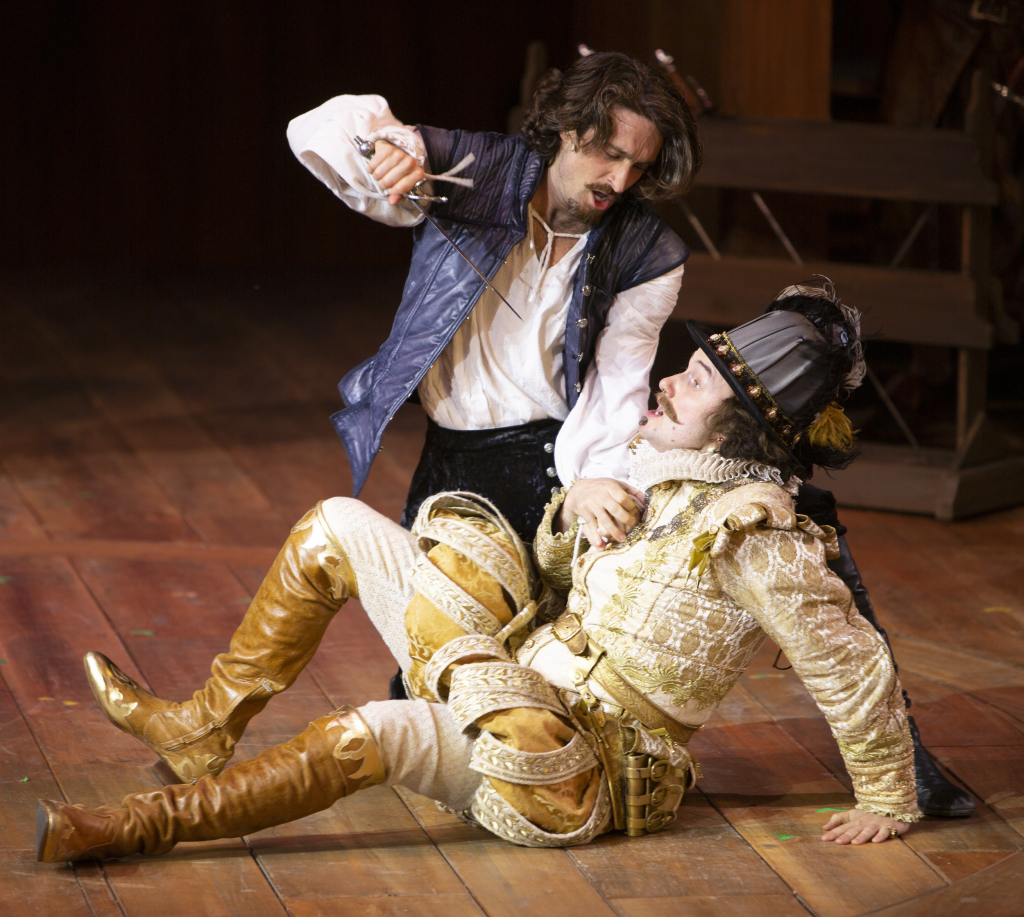
Credit: Tim Matheson
The play follows somewhat the same plotline as Romeo and Juliet: Viola is to be married off to Lord Wessex (Anton Lipovetsky) but she is in love with Will and love must find a way.
Shakespeare takes his romance with Viola and works it into what will become the play, Romeo and Juliet.
Tangled into this is Queen Elizabeth I, a theatre goer who says, “We very much like a dog” in plays. Jennifer Lines makes a breath-taking entrance as the queen in a dazzling gown with meters of sparkling trim. And, of course, there is a dog – a bouncy, well-trained King Charles spaniel that, naturally, brings the house down. (The spaniel alternates with another terrier-type dog.)
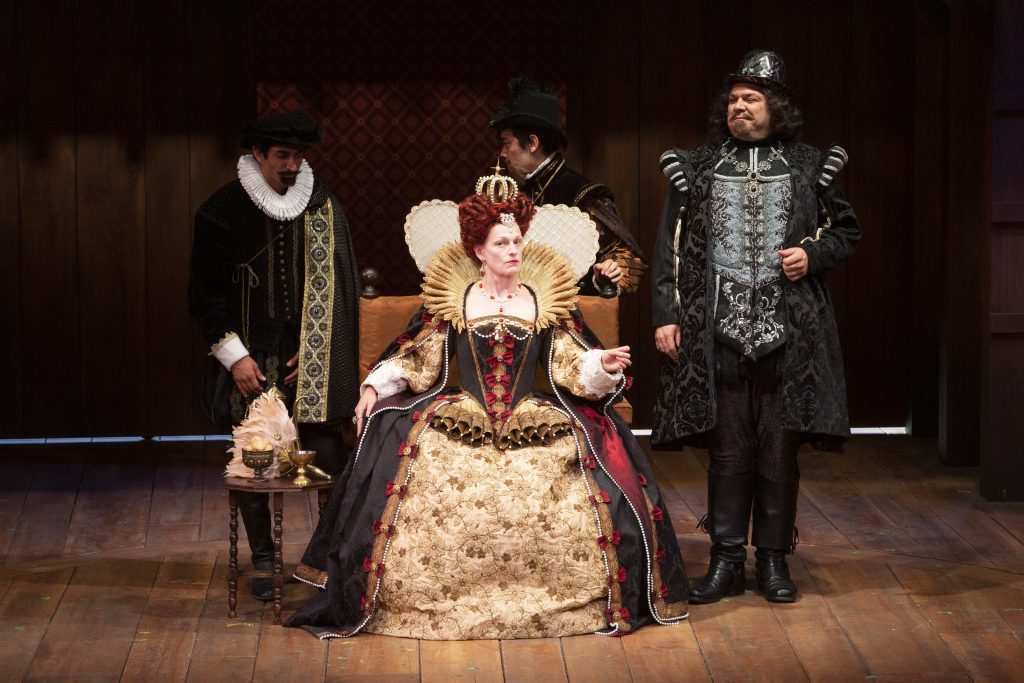
Gallant is not only a charming Romeo, he’s an acrobatic one, scaling Viola’s balcony like a chimpanzee. Poetic on the page, this Shakespeare is a bit tongue-tied and needs Marlowe, hiding in the shrubbery, to feed him lines like, “Shall I compare thee to a summer’s day. . . “ suggesting that not only did Shakespeare borrow plots from previous playwright, take credit for plays that were not actually written by him, but that even some of the sonnets might have been ‘borrowed.’
Ghazal Azarbad’s Juliet is delightfully vivacious and certainly more ‘froward’ than in Shakespeare’s tragedy. Azarbad wears a number of utterly glorious gowns including the white gown in the white-on-white, play-within-a-play-within-a-play scene in which Will’s now renamed, rewritten Romeo and Juliet is finally staged.
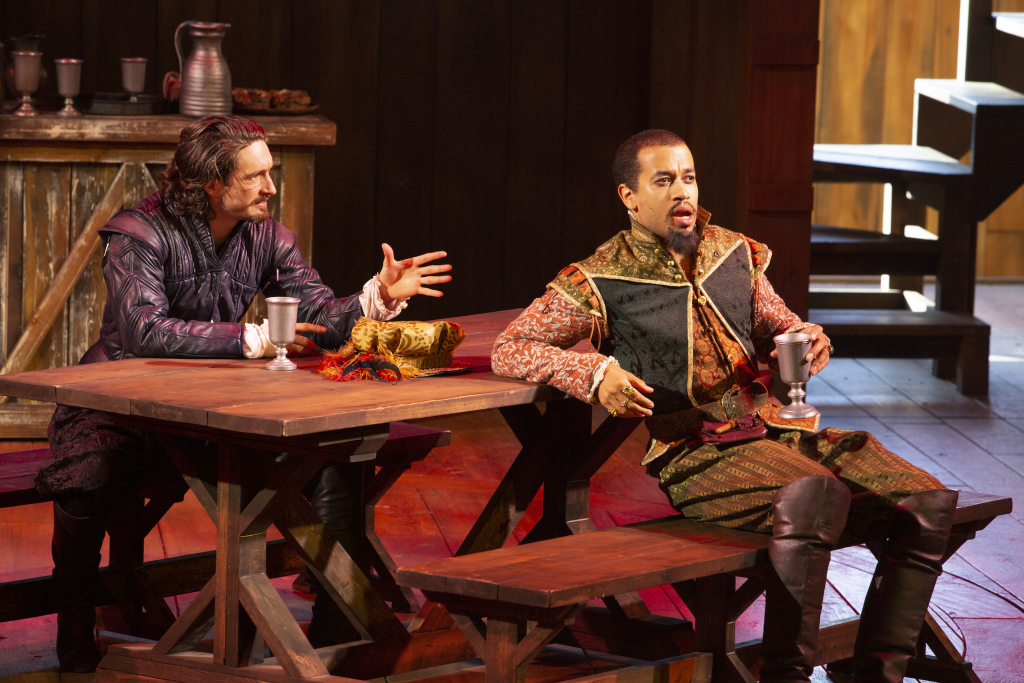
Credit: Tim Matheson
Austin Eckert brings tremendous generosity and goodwill to Marlowe while Anton Lipovetsky, often cast in humourous roles, is a serious, somewhat petulant Lord Wessex. Susinn McFarlen provides matronly warmth to the role of Viola’s nurse while Kamyar Pazandeh is a handsome, swaggering Ned Alleyn, the celebrated Elizabethan actor. Pay attention to Kate Besworth who, late in the play, gives her character’s name; suddenly, the character’s penchant for violence makes very funny sense.
Music plays a large part in this production with choral singing, haunting harmonies – reminiscent of Gregorian chants – and sprightly fiddle music. It never ceases to impress me how multi-talented actors are; these are not easy harmonies yet they are sung masterfully.
Romance within a romance; a clever commentary on the business of theatre and women’s place in it; humour; glorious poetic language; and coming to terms with the world as it really is (or was) – it’s all wrapped up in Shakespeare in Love.
Vanier Park + Bard on the Beach + Shakespeare in Love: what’s not to love?

